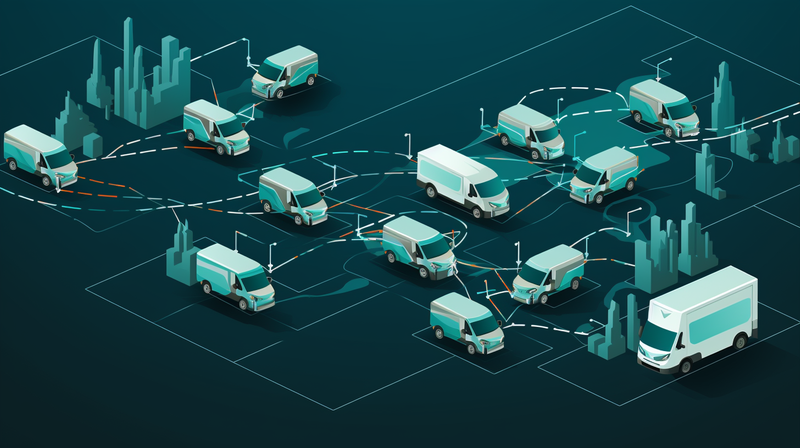AI Is Transforming Field Service Operations

The field service industry is evolving at lightning speed, all thanks to the power of artificial intelligence (AI). From optimising technician workflows to enhancing customer experiences, AI-driven solutions are set to reshape field service operations and drive efficiency, accuracy, and productivity.
TECHNICIAN MOBILITY
By leveraging machine learning algorithms, including Natural Language Processing (NLP), these AI-powered enhancements to technician mobile apps are transforming technicians' day-today operations. Say goodbye to the days of tedious data entry. With automated data capture, AI, supported by NLP, can extract information from equipment sensors, customer databases, or previous service records, populating an app with essential data. NLP capabilities enable real-time communication and seamless task management through voice recognition. Technicians can effortlessly access crucial information, update records and collaborate seamlessly. These intelligent features will skyrocket productivity, accuracy, and customer satisfaction.
DISPATCHING PROCESSES
Dispatching can be a tricky business, but AI is paving the way here. AI scheduling, or optimisation algorithms, which can be a specific algorithm or a combination of algorithms, consider factors such as technician availability, skills, location, and job priorities to optimise schedules on the fly. By dynamically adjusting schedules in real time AI optimises response times, reduces travel distance and maximises resource utilisation. With AI-driven dispatching systems, field service organisations can enhance operational efficiency, minimise costs and improve customer service by ensuring the right technician is seamlessly matched to the right job at the precise moment it arises – no more delays or misplaced assignments.
ASSET SERVICE MANAGEMENT
AI, through predictive analytics, can work wonders in asset service management with realtime monitoring and predicting equipment failures. Predictive analytics involves the use of various statistical modelling techniques, data mining methods, and machine learning algorithms to extract insights from data and make informed predictions. Machine learning algorithms within predictive analytics analyse and learn from historical data patterns and use that knowledge to make predictions on new data, including real-time sensor readings. This allows AI algorithms to predict equipment failures and schedule proactive maintenance. This approach minimises equipment downtime, improves asset reliability and optimises resource allocation. Additionally, AI-powered real-time monitoring enables organisations to detect anomalies, trigger alerts and take prompt action to prevent potential issues, leading to increased asset lifespan and operational efficiency.
CONTRACT MANAGEMENT
AI automates contract analysis, review, and compliance checks using a combination of NLP and machine learning algorithms. Through NLP, AI systems can understand and analyse the textual content of contracts, enabling accurate extraction and interpretation of contract terms. By comparing these terms against the latest regulations, AI systems can flag any inconsistencies that may have been missed. Automated alerts and notifications can then be sent to relevant stakeholders regarding upcoming compliance obligations, deadlines, or regulatory changes. Additionally, AI provides insights through predictive analytics, leveraging machine learning algorithms to identify trends, risks, and opportunities associated with specific contract terms or suppliers, leading to enhanced contract lifecycle management, risk mitigation, and optimised vendor relationships.
TRAINING AND ONBOARDING
AI opens up exciting possibilities in technician training and onboarding. Interactive training modules analyse performance data and offer personalised recommendations for skills development. Using augmented reality (AR) and virtual reality (VR) technologies, technicians can receive step-by-step instructions and virtual assistance and visualise complex procedures. They can also access remote guidance from experts, enhancing engagement and effectiveness while reducing onboarding time. Moreover, with generative AI such as ChatGPT, field technicians can quickly ask questions and receive in-depth responses, eliminating the need for product manuals or time-consuming searches. This empowers technicians with the knowledge and expertise required to deliver exceptional service. A study by Mordor Intelligence (2020) revealed that 33% of field service organisations identified augmented reality as a technology they plan to implement in the next five to 10 years, further highlighting its potential in the field service industry.
CUSTOMER SERVICE
AI is reshaping customer service in field service by enabling faster response times, personalised support, and proactive recommendations. AI-powered chatbots and self-service portals utilising generative AI techniques handle routine customer queries 24/7, freeing up resources to focus on complex issues. Generative AI models are trained to generate human-like responses, and NLP technology allows these chatbots to understand and respond to customer enquiries in a human-like manner. By utilising machine learning techniques, including generative models, AI algorithms can analyse customer data and historical records, reducing the need for repetitive explanations and delivering personalised service offerings while anticipating customer needs. For example, an AI system can send proactive reminders and suggest scheduling a service appointment for a customer with a specific piece of equipment that requires regular maintenance.
CONCLUSION
The AI revolution is in full swing and field service organisations have a golden opportunity to harness its power. By leveraging the transformative power of AI in these six critical areas, field service organisations can enhance operational efficiency, minimise costs, and improve customer service. The future of field service is AI-driven and organisations that embrace this technology will be able to deliver exceptional service, stay ahead of the competition, and exceed customer expectations.
